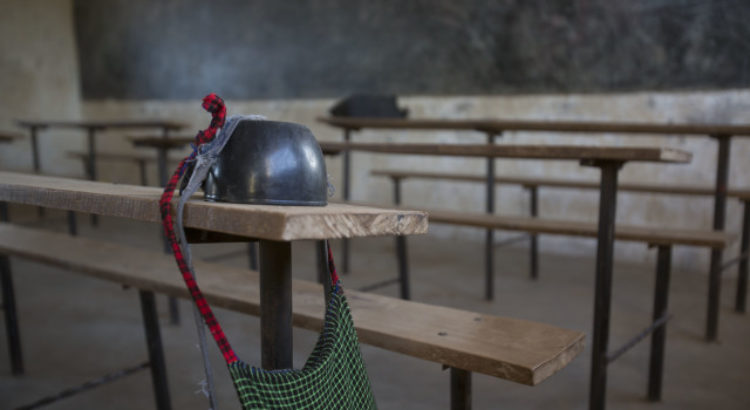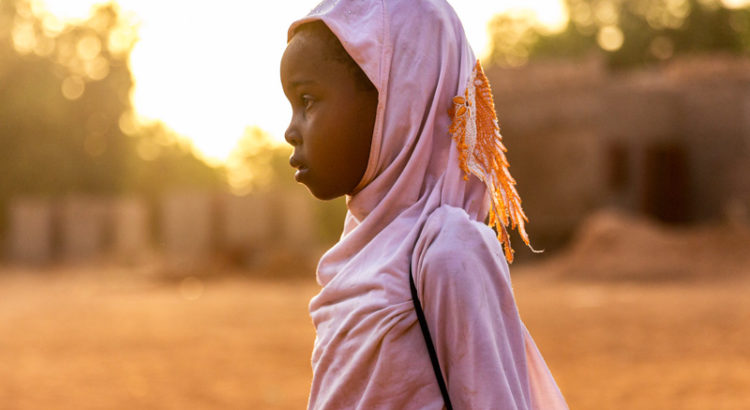By Rokhaya Fall Diawara and Tidiane Sall, UNESCO
The spread of COVID-19 is a growing worry for Africa. Among the 47 African countries that have closed their schools and universities to more than 280 million African children, 10 have not yet identified a single case of the virus. These closures will hold back education even further on a continent where already more than 200 million children and adolescents were not learning. The government of Senegal closed its schools on March 16 – one of the first to do so on the continent. What measures have been taken to ensure that learning doesn’t stop?
Following school closures in Senegal, the Minister of Education recognized openly that there were limits to the response plan envisaged by the State. This emergency plan takes place in a school context characterized by teachers who do not have enough teaching hours to cover the curriculum and already weakened by repeated strikes in recent years. The idea was to to start with something and then work towards a more efficient model.
A plan based on a strategic partnership
The Ministry of National Education (MEN) has developed a response plan consistent with the national strategy led by the Ministry of Health and Social Action. This plan covers not only the period of the pandemic, but also looks at the idea of revising the school calendar in its aftermath and assesses different ways of evaluating learning.
Monitoring this plan will happen by a Monitoring Committee, chaired by the Minister of National Education. The Executive Secretary is the Head of the School Medical Control Division sitting on the National Response Unit fighting against the virus. Its members also include the directors and heads of national MEN departments, representatives of parents’ organizations, teachers’ unions, associations of Daaras (Koranic schools) and students.
What options for continuing learning?
The Online Resource Platform – an option with limitations
The main tool deployed by the government is a platform that will make teaching and learning resources available online. In its first phase, this platform will collect and classify digital resources. In its second phase it will be opened up to teachers, learners and parents. The MEN has created an online space on its website, “Learn at home“, inspired by that in France “My class at home“.
In a country that sits at place 132 on the ICT Development Index, it will be difficult to see this paying off. The first drawback is that it not equitable. While 116% were found to have mobile access in 2016, the cost of using such platforms remains too high for many : 31% of the population lives on less than $ 1.90 in purchasing power parity. In short, less than 20% of senior students have access to these resources online.
The second drawback is that the content offered is not sufficiently well aligned with teaching and learning standards. The resources are static; they offer no possibility of interactivity.
The third drawback is that the presentation of the resources could be improved. They are not grouped by type of educational need. Resources are mixed up, ranging from self-directed and auto-corrected learning content to exam tests and their answers.
Learning through television – an intermediate option
To limit the disadvantages suffered by those who do not have access to digital resources, MEN has put a lot of weight on the use of radio and television, which reach 75% of the population, according to the CNRA in 2018. Thus was born a strategic collaboration between MEN and the Ministry of Communication with its technical wings, Radio and Television of Senegal (RTS) and Television of Senegal TDS-SA.
The programs being proposed fall under the responsibility of the Radio and Television School Division (DRTS) within the Ministry of Education, its technical arm, which has 20 years of experience in the media sector. These programs will be repeated across its television partners, RTS regional TV and radio stations, on community radio, as well as all the websites of the various stations.
The Virtual University of Senegal (UVS), which supports thousands of students with not only teaching and learning materials but also with assessments, is a melting pot of experience that the MEN is using as well as the technological wing within the Information and Management System of the Ministry of National Education (SIMEN).
Private television stations are also supporting with programs such as “Salle des Profs” on TFM and “e-school” on the E-TV channel, among others.
The first challenge with this option is getting it working in time and to find suitable technical means and audiovisual equipment. In addition, it requires rapidly finding qualified teachers who can provide distance training. A specific challenge is to script the courses and communicate on the programme schedule, as well as quality assure the programs on offer: image quality, approach, style, visibility and legibility must all be up to standard.
What are the most urgent needs?
Senegal is showing a clear desire to take the first steps towards educational resilience in the face of this crisis. In the case of the solutions proposed, it is urgent to examine a) the need to give teachers more professional training in distance education; b) how to extend strategic partnerships such as that with RTS to telephone companies, for example, to overcome the thorny question of connection and data; c) how to equip the DRTS and acquire ICT materials to support learners and teachers; and d) how to create real digital platforms capable of meeting the challenge of home learning.
UNESCO has just launched the Global Coalition for Education facing COVID-19. Several agencies, private companies, philanthropists and countries are members. UNESCO has already started supporting Senegal in the development of its action plan and especially in mobilising resources for its implementation. Interesting projects on teacher training to provide quality distance education for students in emergencies are also under consideration. Nothing is guaranteed in an unexpected crisis such as this, but the will to find solutions, as we can clearly see in Senegal, constitutes an opportunity for real multilateral support, which UNESCO intends to respond to.
Fuente: https://gemreportunesco.wordpress.com/




















 Users Today : 48
Users Today : 48 Total Users : 35460179
Total Users : 35460179 Views Today : 66
Views Today : 66 Total views : 3418849
Total views : 3418849